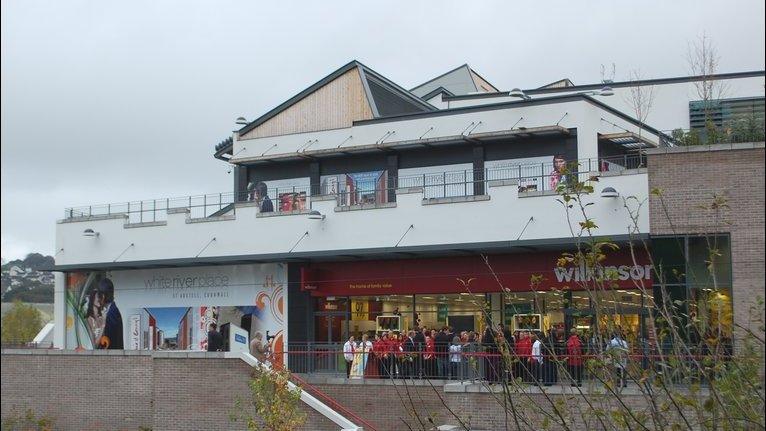St Austell 'Clay Town' rebrand plan to celebrate china clay
- Published
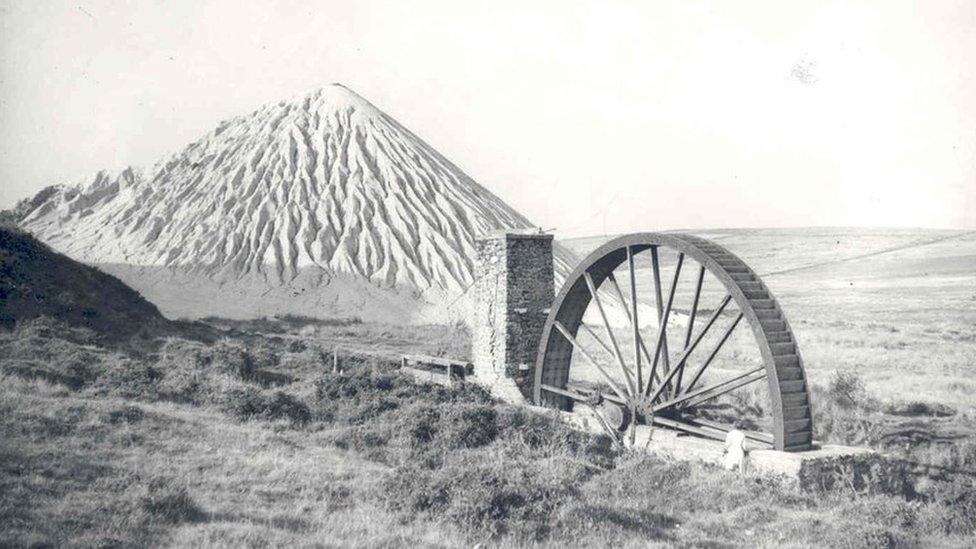
By the early 20th Century, Cornwall dominated the global market, producing half the world's china clay which was used to produce the finest porcelain and pottery
The famous blue and white striped Cornishware pottery could be made in the county it was named after, nearly 100 years after it first appeared.
The plan is part of a multimillion-pound regeneration project including rebranding St Austell as "Clay Town" in tribute to it as the centre of Cornwall's china clay industry.
It's hoped the town could become a centre for the ceramic arts.
A partnership with Stoke-on-Trent - famous for pottery - is also planned.
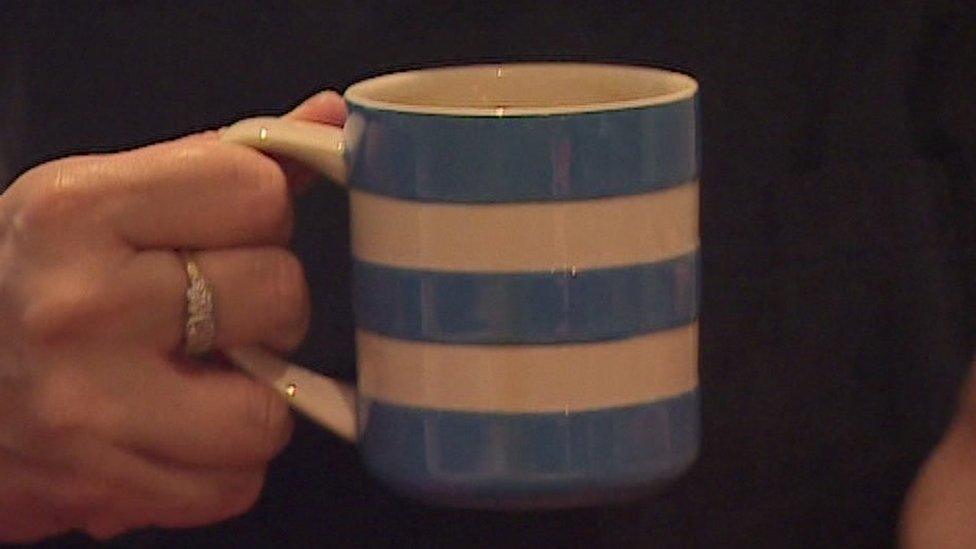
Cornishware was so named because it reminded a pottery employee of Cornwall's blue skies and white-crested waves
James Staughton, chairman of the St Austell Bay Economic Forum and chief executive of St Austell Brewery, said it was a "huge opportunity" for the town.
Cornishware was first produced in Derbyshire in 1924 and was so named because the blue and white stripes reminded an employee of Cornwall's blue skies and white-crested waves.
"China Clay is unique to us and it's something we should really celebrate from the rooftops," Mr Staughton told BBC News.
"By putting together a programme of events as a cultural destination, I think we can encourage people in who will spend their time and hopefully their well-earned money."
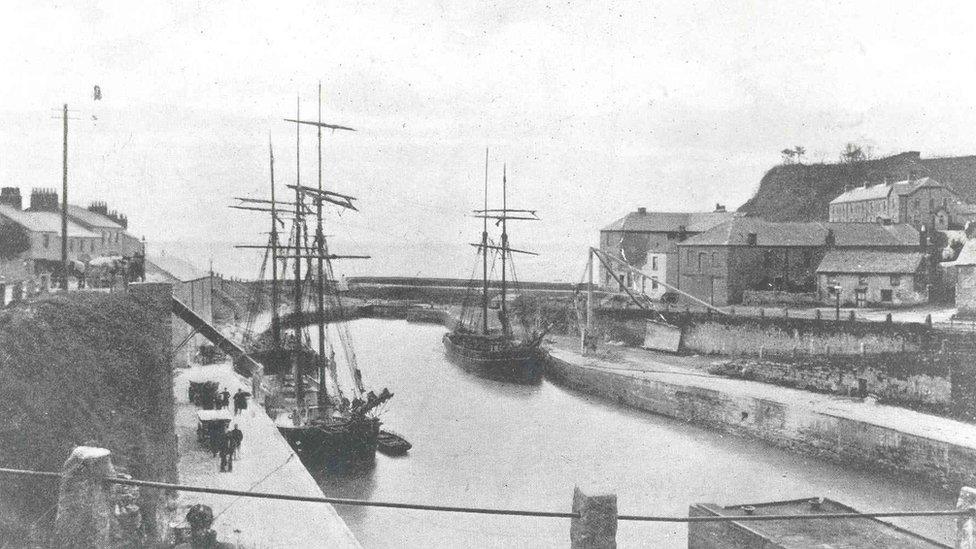
China clay from St Austell was exported around the world from Charlestown Harbour
Adam Daniels, who runs a restaurant in the town, said: "I've lived in St Austell pretty much all my life and it's got worse - not so many jobs, not so many shops.
"This would be a good thing because St Austell needs something and at the minute there's not a lot happening."
However, Ally Watkins, who runs a spice shop, said she was sceptical as previous attempts had failed because businesses and residents were not listened to.
"The first thing that comes to mind is Baldrick and 'another cunning plan'," she said.
"I don't mean to be dismissive... but so many have already been tried and tested and they've not really amounted to much."
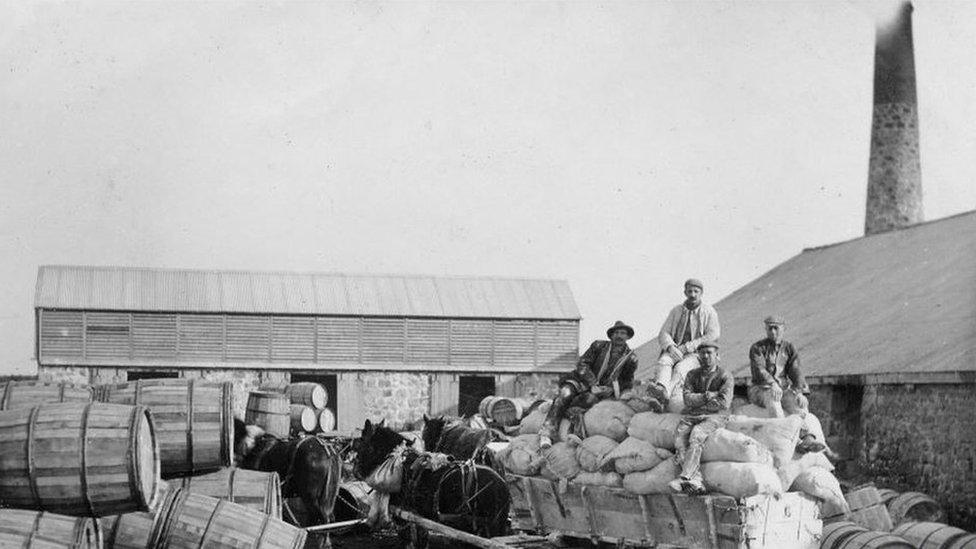
The china clay industry employed more than 7,000 local workers at its peak, powering the local economy
In the early 20th Century, Cornwall dominated the world's market, producing one million tonnes of china clay every year - 75% of which was exported - and employed more than 7,000 local workers.
The china clay was used to make the finest porcelain and pottery, including Wedgwood, Spode and Minton.
Known as "white gold", china clay powered the local economy then and it is hoped the Clay Town project could do so again.
- Published22 June 2012
